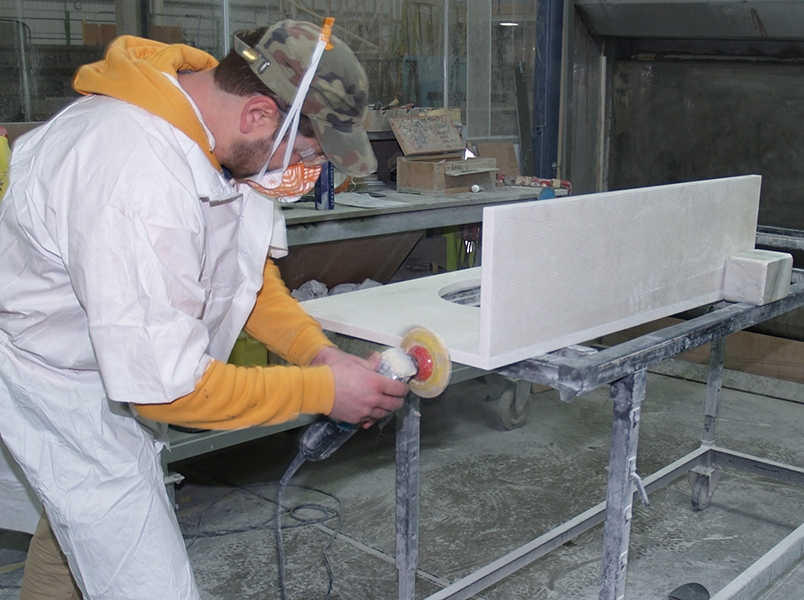HSE warns it will prosecute as it extends its focus on silica dust
The Health & Safety Executive's targeted health initiative on respirable crystalline silica dust in manufacturing businesses across England, Wales and Scotland is continuing. And it warns it will be prosecuting companies found wanting.
The inspections started at the beginning of October, focussing on the risks to lungs of respirable crystalline silica (RCS), which is found in various concentrations in most stone, rocks, sand and clay, and in products such as engineered quartz and porcelain.
HSE inspectors are visiting manufacturing business where these materials are used. This includes stone companies – and HSE says it will particularly focus on those producing kitchen and bathroom worktops.
HSE inspections will check whether employers and employees know the risks involved when dealing with silica and ensure that control measures are in place to protect workers’ respiratory health.
Prolonged exposure to airborne particles of RCS can lead to life-changing respiratory conditions such as silicosis, chronic obstructive pulmonary disease and lung cancer, warns HSE.
It reminds stone companies of its recently refreshed guidance on silica specifically for stone companies that can be downloaded here.
The HSE guidance for controlling exposure to stone dust (HSG201) has also been refreshed.
Silicosis, chronic obstructive pulmonary disease (COPD) and lung cancer can all be caused by breathing in particles of silica of about five microns size. Over time, exposure to silica particles can harm a person's ability to breathe and cause irreversible, often fatal, lung disease.
Employers have a legal duty to put in place suitable arrangements to manage health & safety and ensure they comply with the Control of Substances Hazardous to Health (COSHH) Regulations 2002.
Inspectors visiting companies will be looking for evidence that businesses have put in place effective measures, such as Local Exhaust Ventilation (LEV), water suppression and, where appropriate, use of protective equipment such as respiratory protection (RPE) to reduce workers’ exposure to RCS.
If any health and safety breaches are discovered, HSE warns it will take enforcement action.
There is general information about silicosis, including a video, here. In the video, which you can also watch below, HSE’s Chief Medical Advisor, Professor David Fishwick, explains more about silicosis.
And in case it has slipped your mind, 17 November is World Chronic Obstructive Pulmonary Disease (COPD) Day.
COPD describes a number of breathing problems where there is damage to the breathing tubes and air sacs in the lungs, conditions which can be caused by exposure to RCS.
More information on COPD can be found on the HSE website – click here to see it.

